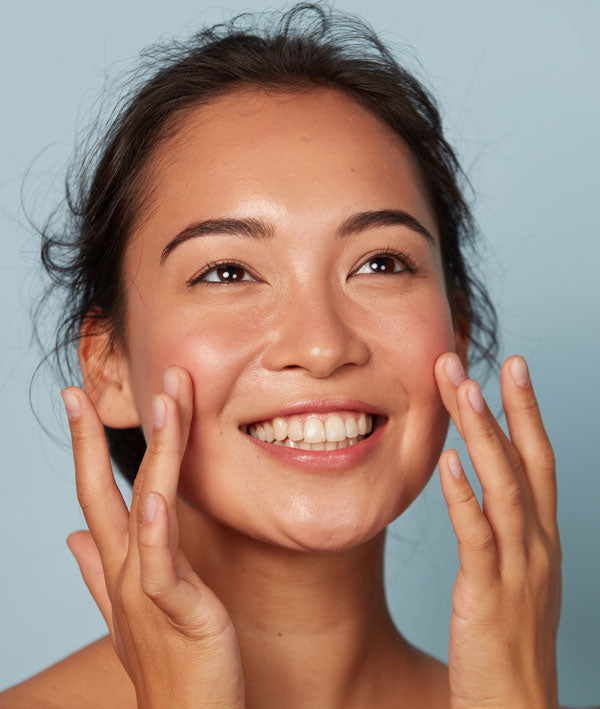Acne is a common skin concern affecting millions of people worldwide. From occasional breakouts to chronic blemishes, finding an effective solution can feel like a never-ending battle. Among the countless skincare ingredients touted for their benefits, vitamin C serum stands out as a powerhouse for achieving clearer, healthier-looking skin.
But does vitamin C help acne? And if so, how does it actually work on acne-prone skin? In this editorial, we’ll explore the science behind vitamin C and acne, the benefits of using vitamin C serum for acne-prone skin, and the best ways to incorporate it into your daily skincare routine for lasting results.
Vitamin C Serum Benefits for Skin
Vitamin C, also known as ascorbic acid, is a potent antioxidant that plays a vital role in maintaining healthy, resilient skin. It helps neutralize free radicals—the unstable molecules caused by pollution, stress, and UV exposure—that can accelerate aging and contribute to inflammation.
Beyond its antioxidant power, vitamin C supports collagen synthesis, which keeps skin firm, smooth, and youthful. It also enhances the skin’s natural repair process, making it an essential ingredient for maintaining balance and radiance.
Overall Benefits of Vitamin C Include:
-
Neutralizes free radicals to protect against environmental damage.
-
Boosts collagen production for smoother, plumper skin.
-
Reduces redness and inflammation, helping calm irritated or reactive skin.
-
Fades dark spots and hyperpigmentation, promoting a more even skin tone.
-
Brightens dull skin, revealing a radiant, refreshed complexion.
While these general benefits make vitamin C a must-have in any skincare routine, it’s especially valuable for those struggling with acne. Let’s dive deeper into the connection between vitamin C and acne—and why this ingredient might be the key to improving both active breakouts and the marks they leave behind.
Does Vitamin C Help Acne?
So, does vitamin C help acne? The short answer: yes—when used correctly and consistently. While vitamin C doesn’t function like traditional acne treatments (such as salicylic acid or benzoyl peroxide), it provides essential support that helps acne-prone skin heal faster, stay calmer, and resist new breakouts.
Here’s how it works:
1. Reduces Inflammation
Inflammation is at the heart of acne. Red, swollen blemishes are your body’s immune response to clogged pores and bacteria. Vitamin C’s anti-inflammatory properties help soothe irritation, reduce redness, and calm inflamed pimples, making breakouts appear less noticeable.
2. Prevents Oxidative Stress
Free radicals and environmental pollutants can irritate the skin and trigger acne flare-ups. Vitamin C’s antioxidant protection shields the skin from these stressors, creating a more stable, balanced environment for healing.
3. Supports Healing
Vitamin C helps accelerate the skin’s natural healing process. This is especially beneficial for post-acne recovery, as it helps repair damaged tissue, minimize scarring, and smooth rough texture left behind by breakouts.
4. Reduces Post-Acne Marks
Even after acne clears, stubborn dark spots (post-inflammatory hyperpigmentation) can remain. Vitamin C helps inhibit melanin production, fading these marks faster for a more even complexion.
5. Promotes Skin Barrier Health
Healthy, hydrated skin is less prone to breakouts. Vitamin C supports overall barrier integrity, which helps protect against external irritants and bacteria that can clog pores.
In other words, while vitamin C isn’t a “spot treatment,” it’s a skin-strengthening ally that helps prevent and repair acne-related damage—making it one of the best complementary ingredients in an acne-friendly routine.
Is Vitamin C Good for Acne-Prone Skin?
Many people wonder: is vitamin C good for acne or could it make things worse? The answer depends on your skin type and how you use it. When formulated properly, vitamin C is safe—and highly beneficial—for most acne-prone complexions.
However, because vitamin C is acidic, it’s essential to choose the right type and concentration. Some forms of pure L-ascorbic acid can irritate sensitive skin or trigger breakouts if used in overly high doses.
For acne-prone or sensitive skin, look for gentler, stabilized derivatives such as:
-
Sodium Ascorbyl Phosphate (SAP): Known for being acne-safe and antibacterial. Studies show it can actually help reduce acne-causing bacteria (C. acnes).
-
Magnesium Ascorbyl Phosphate (MAP): A milder, water-soluble form that brightens and hydrates without irritation.
-
Ascorbyl Glucoside: Offers antioxidant protection and tone correction with minimal sensitivity.
These forms of vitamin C provide similar brightening and anti-inflammatory benefits—without the sting or potential for purging that pure ascorbic acid might cause in delicate skin.
If you’ve ever asked yourself, “Is vitamin C good for acne or will it make me break out?”—the key is using the right formula for your skin’s tolerance and pairing it with soothing, hydrating products that balance its potency.
Vitamin C Serum and Acne: How It Prevents Breakouts
When it comes to prevention, vitamin C serum and acne go hand in hand. Rather than waiting for breakouts to appear, vitamin C works proactively to maintain a clearer complexion and stop acne triggers before they start.
Here’s why vitamin C serum is so effective in prevention:
1. Strengthens the Skin Barrier
A compromised skin barrier allows bacteria and pollutants to penetrate, leading to inflammation and clogged pores. Vitamin C supports the lipids that keep the skin barrier strong, resilient, and better equipped to fight off acne-causing irritants.
2. Balances Oil Production
While vitamin C doesn’t directly regulate sebum, its barrier-supporting and anti-inflammatory effects can indirectly reduce the skin’s tendency to overproduce oil—a common cause of acne.
3. Encourages Cell Turnover
By promoting gentle exfoliation at a cellular level, vitamin C helps prevent dead skin cells from building up and blocking pores. This results in smoother texture and fewer breakouts.
4. Fades Existing Blemishes and Prevents Future Ones
By fading post-acne dark spots, vitamin C helps skin look clearer overall. Its brightening action can also discourage recurring pigmentation from forming after future blemishes.
5. Boosts Antioxidant Defense Year-Round
Environmental stressors—like UV rays, pollution, and even blue light from screens—can worsen acne inflammation. Vitamin C provides daily protection against these triggers, minimizing oxidative stress that contributes to chronic breakouts.
The best part? Vitamin C serum layers beautifully with other acne-safe actives, like niacinamide, hyaluronic acid, or azelaic acid, helping you build a routine that targets both acne and skin clarity at the same time.
Vitamin C for Acne Scars & Hyperpigmentation
One of the most frustrating parts of acne is the marks it leaves behind. Even after pimples heal, post-inflammatory hyperpigmentation (PIH) can linger for weeks or months. This is where vitamin C truly shines.
How Vitamin C Fades Acne Scars:
-
Inhibits Melanin Production: Vitamin C blocks the enzyme tyrosinase, which drives excess pigment formation, preventing dark spots from deepening.
-
Brightens and Evens Skin Tone: Its gentle exfoliating and antioxidant actions gradually lift discoloration, revealing a more balanced complexion.
-
Supports Collagen Repair: Vitamin C strengthens the dermal matrix, helping to improve the look of textured scars over time.
-
Enhances Sun Protection: When paired with sunscreen, vitamin C boosts UV defense, reducing the chance of post-acne pigmentation returning.
Consistent use of a vitamin C serum for acne scars can lead to noticeable improvement in tone and texture—without the downtime or harshness of more aggressive treatments.
How to Incorporate Vitamin C Into Your Skincare Routine
To maximize the benefits of vitamin C and acne care, it’s important to apply it in the right order and concentration.
Step-by-Step Routine:
-
Cleanse:
Start with a gentle, non-stripping cleanser to remove dirt, oil, and sunscreen without compromising your barrier. -
Tone (Optional):
Apply a hydrating toner or essence containing calming ingredients like green tea or chamomile. -
Apply Vitamin C Serum:
Dispense a few drops and gently press into clean, slightly damp skin. Focus on areas with acne marks or uneven tone. -
Moisturize:
Follow with a lightweight, non-comedogenic moisturizer to lock in hydration. -
Sunscreen (AM Only):
Always finish your morning routine with a broad-spectrum SPF 30 or higher. Vitamin C and sunscreen make a powerful duo for preventing pigmentation and maintaining clarity.
If you’re new to vitamin C, start with a lower concentration (around 10%) a few times per week. Gradually increase as your skin builds tolerance. For sensitive or acne-prone skin, sodium ascorbyl phosphate or magnesium ascorbyl phosphate are great beginner-friendly choices.
Common Mistakes to Avoid
Even the best ingredients can backfire if used incorrectly. Avoid these common pitfalls when introducingvitamin C serum for acne:
-
Using Too Much Too Soon: Start slow. Overusing vitamin C can overwhelm the skin, leading to purging or irritation.
-
Mixing with Incompatible Actives: Avoid layering vitamin C directly with strong exfoliating acids or retinoids unless formulated for combination use.
-
Skipping SPF: Without sun protection, vitamin C’s brightening benefits are quickly undone by UV exposure.
-
Storing Improperly: Vitamin C oxidizes easily—keep your serum tightly sealed and away from light and heat.
Choosing the Right Vitamin C Serum for Acne-Prone Skin
When shopping for a vitamin C serum for acne, look for these characteristics:
-
Formulated for sensitive skin: Gentle derivatives reduce irritation risk.
-
Stabilized formula: Prevents oxidation and ensures consistent potency.
-
Balanced pH (around 5–6): Less likely to disrupt the skin barrier.
-
Non-comedogenic base: Lightweight, breathable, and oil-free.
Pro tip: Look for serums that pair vitamin C with soothing ingredients like niacinamide, panthenol, or hyaluronic acid. These combinations help calm redness while amplifying hydration and clarity.
Final Thoughts: Is Vitamin C Good for Acne?
If you’ve ever wondered “is vitamin C good for acne?”, the answer is a resounding yes—especially when used as part of a balanced, consistent skincare routine.
Vitamin C may not replace your go-to acne treatments, but it enhances your skin’s overall resilience, reduces redness, supports healing, and fades the marks acne leaves behind. Over time, you’ll notice brighter, smoother, more even-toned skin that feels calm and confident year-round.
So whether you’re dealing with occasional blemishes or ongoing breakouts, incorporating vitamin C serum and acne-safe skincare can help you achieve a more luminous, clear complexion—without irritation or compromise.
In summary:
-
Does vitamin C help acne? Yes, by calming inflammation and speeding healing.
-
Is vitamin C good for acne? Absolutely—it strengthens your barrier and reduces post-acne marks.
-
How does vitamin C serum and acne prevention work? It protects, brightens, and supports healthy cell turnover.
If you’re ready to give your skin the antioxidant edge it deserves, try adding a small-batch vitamin C serum to your daily routine. Over time, you’ll discover why so many dermatologists and skincare enthusiasts consider it a must-have for clearer, brighter, and more balanced skin.






